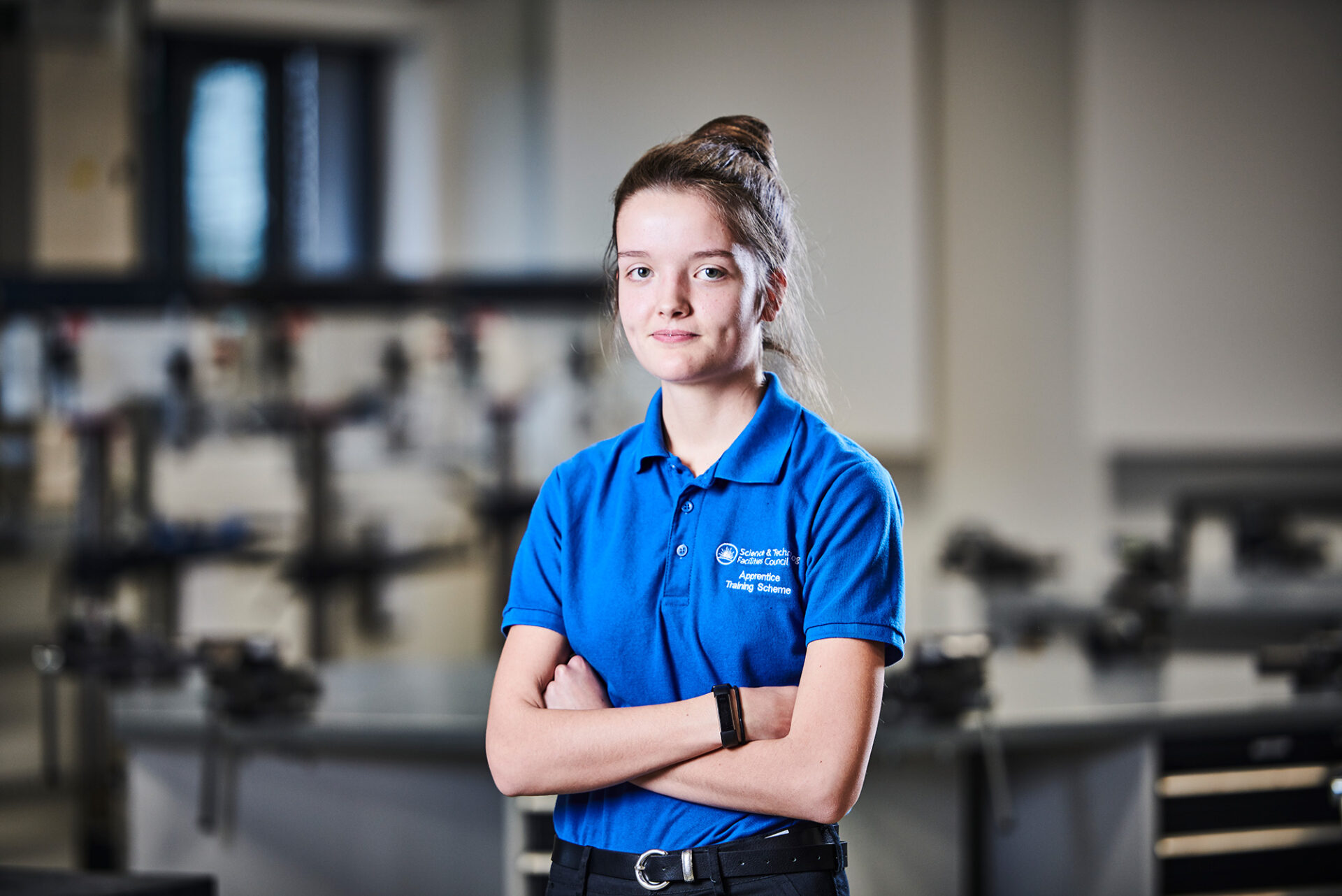Apprentice Case Study: Tara Allinson

Tara has always been interested in engineering, working on motorbikes with her engineering family before she began her apprenticeship at OAS. As she returns to her employer after completing the first year’s off-the-job programme, she explains why she loves the balance of theoretical and practical training that an apprenticeship offers and why she thinks apprenticeships are best way for school leavers to kick-start their careers.
Why did you choose an apprenticeship?
I saw it as a good alternative to staying on at school or going to college. The opportunity to gain confidence through real experience in the workplace was also a big benefit for me.
Did you have a particular career in mind when you made your decision? If so, what and why?
I completed a work experience placement in Electronic Engineering and really loved it, so I knew then that that was the discipline I was interested in pursuing. I researched all the different options for entering the profession and an apprenticeship felt like the best option for me.
Were you always interested in a career in engineering?
A few members of my family are engineers, and we worked on motorbikes together when I was younger, so I’ve always been around engineering and always found it interesting.
Did you have an idea of what an apprenticeship would involve before you came to OAS?
Yes – I knew someone who was just finishing their apprenticeship as I was starting mine, so they gave me a good idea of what to expect. I also did a lot of research about different apprenticeship programmes before I decided to apply to OAS.
What have you learnt at OAS?
I have already learnt a huge variety of practical and theoretical skills, including aspects of electronic, electrical and mechanical engineering such as soldering, wiring, operating machinery and working on engines. My new theoretical skills include maths, mechanical principles, measurement, drawing, materials, and health and safety. This all helps me to understand the principals involved in engineering and how they interrelate.
What sort of projects have you been/are you working on?
In my first year, I have worked on several practical and theoretical projects, gaining new skills and knowledge as well as applying skills I had already learned earlier in the programme. I have created components through hand fitting techniques and milling and turning operations, and built a variety of circuits in electronics and fluid power. I have also done the wiring in electrical installations, and I assembled, disassembled and inspected different components from an engine. The theoretical projects focused on creating reports on the practical activities, as well as completing a variety of assessments and assignments to progress through to my second year’s training.
Have there been any memorable projects/experiences from the training you’ve received at OAS?
The electronic projects were the most memorable for me because I found them the most interesting. One example of these was an audio amplifier and another was an infrared light barrier. I also learnt to use an oscilloscope and function generator, which I applied to produce and display a variety of different waveforms.
How has the apprenticeship programme been beneficial to you and your career?
So far, my apprenticeship has enabled me to gain the skills that are vital for a successful engineering career. The first year of my programme was off-the-job training full-time, so I’ve become competent in operating the equipment and machinery that I’ll be using in industry as I return to my employer.
What would you say are the benefits and what advice would you offer to those looking to apply to the OAS apprenticeship programme?
Because the OAS programme brings together apprentices from lots of different employers, one of the big benefits to me is the opportunity to get to know lots of new people who share the same interests as me. I also think it’s great to have a full year’s training at the beginning, because it gives you great confidence in your knowledge and skills before you head back into industry to complete the other three years’ on-the-job training with block release sessions back in centre.
My advice would be to make sure you talk about your engineering experiences in your interview to make sure your passion and interests stand out. Don’t be afraid of interviews – I’d recommend applying to several companies, because the more practice you get, the more confident and better you’ll be, and it’s a great skill to have for the future too.
What has been your biggest achievement so far during your apprenticeship?
I’m really proud to have achieved Distinctions in several Level 3 units, such as maths and mechanical principles. I was also awarded “Apprentice of the Month” for August 2020.
What do you enjoy most about your work?
I enjoy learning about all the different aspects of engineering and then applying that new knowledge to complete practical activities.
What are your future career plans?
I intend to complete higher education once I have completed my apprenticeship. I want to continue to grow my engineering knowledge so that I become an expert in my career path. Ideally, I’d like to do this part time so that I can continue to gain valuable experience within industry whilst I study.
Would you recommend apprenticeships to others?
Yes. I think apprenticeships are the best option for someone leaving school because you gain qualifications as well as valuable industry experience. It also offers a great start to your career because you can progress to being employed as a technician with the company that you completed your apprenticeship with.